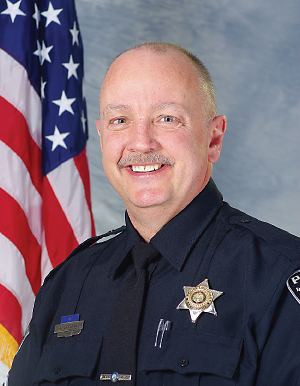Somewhere in America, today or tonight or tomorrow, a police officer is going to come face to face with a distraught military veteran who will be in imminent danger of harming himself or someone else.
Confrontations between police and veterans can end badly, with death or injury to either or both.
“Everybody’s got a story about a confrontation, but there are no real strategies to deal with it,” said Dan Abreu, a senior project associate at Policy Research Associates in Delmar, N.Y., who studies technical assistance on issues relating to behavioral health and criminal justice.
“These are low-frequency incidents, so nobody connects the dots,” he said in an interview.
In fact, no one knows how often such confrontations occur. But it happens often enough that police and public mental health officials around the country are taking notice and beginning to do something about it. That includes Boise, Idaho, police Sgt. David Cavanaugh.
In 2009 in Boise, a combat veteran with traumatic brain injury and post-traumatic stress disorder who had seen several friends die in Iraq thought someone had kidnapped his dog. He put on riot gear and went out kicking down doors. The incident concluded without harm to the vet or the responding officers.
“Finally they realized he needed help more than prison,” Cavanaugh told Psychiatric News.
Police face a difficult problem when someone is acting outside the norms of society but doesn’t meet the legal requirements for a mental health hold or hasn’t broken any laws, he said. Without specialized training, the officer doesn’t know whom to call or where to send the subject.
By the time of the incident, Cavanaugh had worked for two years to train critical-incident officers in his department. He developed a multi-stage plan for dealing with such cases, which he calls the Veterans Sequential Intercept Model. The goals were to respond safely (for all concerned), verbally deescalate the confrontation, and then connect the person with the resources to provide a longer-term solution.
At the first level lie efforts to prevent confrontations, by educating not only police, but families, employers, and school personnel about mental health matters and taking steps to see that the veteran gets needed treatment.
Ideally, the dispatcher taking the initial call about a crisis situation should try to identify whether the subject is a veteran, said Abreu. “Then, get officers who are vets to take the lead.”
Once an incident is under way, though, different rules apply, said Cavanaugh. “If a gun is involved, we do not have a dialogue until the weapon is out of the way. It’s OK for the subject to rant and rave as long as he doesn’t shoot.”
The initial officer on the scene continues talking with the subject or may call in a specially trained negotiator. The goal is to deescalate the situation and get the subject to calm himself, then connect him with family members or treatment resources. Bluster and bravado are not on the agenda.
“We don’t want to make things worse with our presence,” said Cavanaugh.
Police officers are interested in crisis-intervention training, said Elspeth Cameron Ritchie, M.D., M.P.H., chief clinical officer of the District of Columbia’s Department of Mental Health and a former U.S. Army psychiatrist.
Many police officers are veterans themselves and respect the subject’s time in the service, Ritchie told Psychiatric News. But they also know that veterans have a good working knowledge of firearms.
The first step in deescalating a confrontation is for the responding officer to ask whether the person being addressed is a veteran. “You can’t condescend,” said Ritchie. “Don’t assume the vet wants treatment. Vets might talk to a former service buddy or sergeant or to someone from a veterans’ service organization.”
Complicating encounters with recent veterans may be the particulars of the conflicts in Iraq and Afghanistan, said Ritchie. Police should always be aware that those veterans may have survived one or more explosions that caused traumatic brain injuries or hearing loss. “They may not hear clearly or understand what the officer is saying,” said Ritchie.
Crisis-intervention training can work well only if services—such as specialized psychiatric emergency departments and good post discharge care—are available, said Ron Honberg, J.D., policy director of the National Alliance on Mental Illness, in an interview.
If the subject is accused of breaking any laws, the criminal justice system becomes involved. That may lead to an ordinary case and trial or an alternative path through the system. In Idaho, a statewide court superintendent can assign cases to specialized courts that deal with domestic violence, mental health, or military veterans, said Cavanaugh.
Those courts can divert veterans away from jail provided they accept treatment or other interventions and remain out of trouble. Often, personnel from the Department of Veterans Affairs can help connect a defendant with VA mental health or medical services.
The scope of diversion programs is limited by available funding, however, a serious problem today in local jurisdictions.
“It’s built on a partnership,” said Cavanaugh. “No one can do it by himself.”


